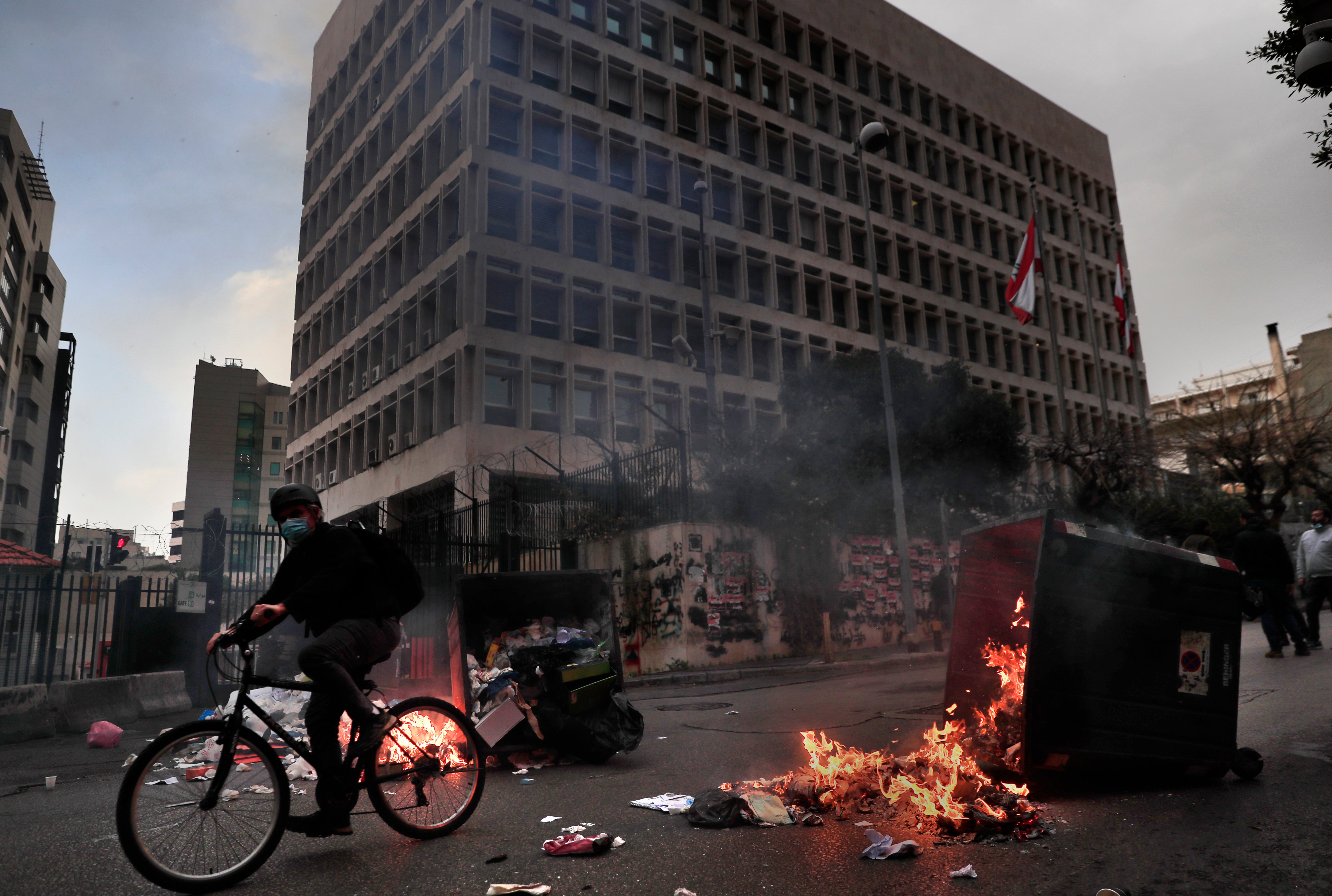World Bank: Lebanon's crisis among world's worst since 1850s
The World Bank says Lebanon’s severe economic and financial crisis is likely to rank as one of the worst the world has seen in the past 150 years

Your support helps us to tell the story
From reproductive rights to climate change to Big Tech, The Independent is on the ground when the story is developing. Whether it's investigating the financials of Elon Musk's pro-Trump PAC or producing our latest documentary, 'The A Word', which shines a light on the American women fighting for reproductive rights, we know how important it is to parse out the facts from the messaging.
At such a critical moment in US history, we need reporters on the ground. Your donation allows us to keep sending journalists to speak to both sides of the story.
The Independent is trusted by Americans across the entire political spectrum. And unlike many other quality news outlets, we choose not to lock Americans out of our reporting and analysis with paywalls. We believe quality journalism should be available to everyone, paid for by those who can afford it.
Your support makes all the difference.Lebanon’s severe economic and financial crisis is likely to rank as one of the worst the world has seen in more than 150 years, the World Bank said in a report released Tuesday.
The World Bank said that since late 2019, Lebanon has been facing compounded challenges, including its largest peace-time economic and financial crisis, the spread of coronavirus and a massive blast at Beirut’s port last year that is considered as one of the largest non-nuclear explosions in history.
The crisis has worsened in recent months amid a paralyzing power struggle between the president and prime minister-designate that has delayed the formation of a new government, The Cabinet of outgoing Prime Minister Hassan Diab resigned days after the Aug. 4 blast, and the country has been without a fully functioning government since. The explosion in the Port of Beirut killed 211 people, wounded more than 6,000 and damaged entire neighborhoods.
In the face of these colossal challenges, continuous policy inaction and the absence of a fully functioning government threaten already dire socio-economic conditions and a fragile social peace with no clear turning point in the horizon, the World Bank report said.
“The economic and financial crisis is likely to rank in the top 10, possibly top 3, most severe crises episodes globally since the mid-nineteenth century,” it added.
The report said the country’s gross domestic product is projected to contract 9.5% in 2021, after shrinking by 20.3% in 2020 and 6.7% the year before. Lebanon’s gross domestic product plummeted from close to $55 billion in 2018 to an estimated $33 billion in 2020, while GDP per capita fell by around 40% in dollar terms, the report said.
“Such a brutal contraction is usually associated with conflicts or wars,” the World Bank said.
The report was released two days before the World Bank’s vice president for the Middle East and North Africa, Ferid Belhaj, and Merza Hussain Hasan, its executive director, were set to arrive in Lebanon to meet with Lebanese officials and urge them to address the crisis “with urgency,” a World Bank spokeswoman said.
For decades, Lebanon has been dominated by the same political elites, many of them former warlords and militia commanders from the civil war. Corruption has been widespread over the past decades, brining the tiny country to near bankruptcy.
In March 2020, Lebanon defaulted on paying back its debt for the first time in its history as the local currency lost more than 85% of its value. Tens of thousands have lost their jobs while many others left the country seeking opportunities abroad. Nearly half the country’s 5 million people live in poverty.
“Lebanon faces a dangerous depletion of resources, including human capital, and high skilled labor is increasingly likely to take up potential opportunities abroad, constituting a permanent social and economic loss for the country,” said Saroj Kumar Jha, the World Bank regional director.
“Only a reform-minded government, which embarks upon a credible path toward economic and financial recovery” can reverse further sinking of Lebanon, he said.
In recent weeks, with foreign currency reserves dwindling at the central bank, Lebanon has been witnessing severe shortage in medicines as well as fuel, with people having to wait in line at gas stations to fill their cars. Electricity cuts last more than 12 hours a day.